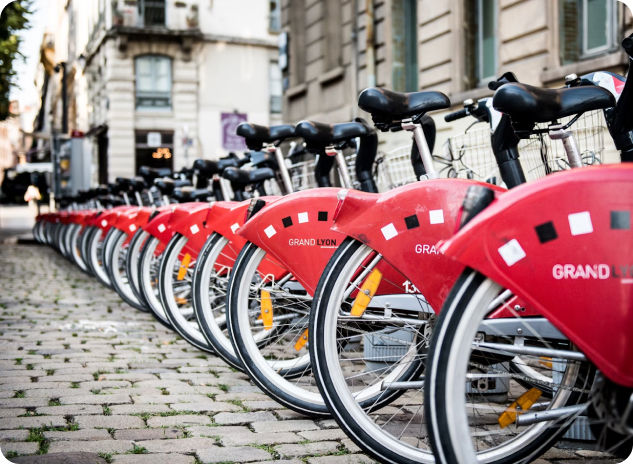Bike Sharing Generates €305 Million a Year Across Europe

EIT Urban Mobility's new study reveals that bike sharing delivers €305 million in annual benefits for Europe.
A new study commissioned by EIT Urban Mobility and Cycling Industries Europe (CIE), and conducted by EY, has for the first time quantified the economic and social return on investment of bike sharing schemes in Europe. The analysis finds that bike-sharing generates €305 million in annual benefits, confirming its role as a key element in sustainable urban mobility.
Bike sharing is now present in over 150 European cities (EU-27, UK, Switzerland and Norway), from large metropolitan systems like Paris with 42 200 bikes to Brussels with more than 11 000 and smaller towns operating just a few dozen bicycles. London is Europe’s leading city for dockless bike ridership, with 28 million trips recorded in 2024. Together, these networks make up a fleet of 438 000 shared bikes, providing millions of trips each year and connecting people to work, education, and public transport.
The Benefits of Bike Sharing in Cities
The study shows that shared bikes contribute to significant environmental, health, and economic benefits. Each year, bike-sharing saves 46 000 tons of CO₂ emissions and 200 tons of harmful air pollutants. By replacing car trips with active mobility, it helps to prevent 1 000 chronic diseases, resulting in €40 million in healthcare savings. Congestion is eased, with 760 000 hours of productivity saved, valued at €30 million, while 6 000 full-time equivalent jobs are supported across Europe. For users, bike sharing offers a cost-effective mode of transport, reducing mobility expenses by up to 90% compared with cars.
For cities, bike sharing is also a strong investment case. For every euro spent today, there is a 10% annual return. By 2030, benefits could rise to €1 billion annually if investment and expansion continue. This would include 224 000 tons of CO₂ emissions avoided, more than 4 200 chronic diseases prevented, and nearly 13 000 jobs supported. Under these conditions, each euro invested could deliver a 75% annual return on public spending.
The study highlights four factors that could drive this growth:
- rising demand due to urbanisation and awareness;
- greater supply through regulatory support and wider coverage;
- fleet electrification in response to strong user interest;
- territorial expansion to close existing service gaps.
These opportunities depend on supportive conditions, including consistent policy and funding, more flexible and reliable systems built on data-driven planning, and stronger integration with public transport and cycling infrastructure.
The findings underline that bike-sharing is both a sustainable and strategic tool for cities. With the right policies and investment, it can support healthier citizens, more efficient transport systems, and stronger local economies.


 Share this page
Share this page


